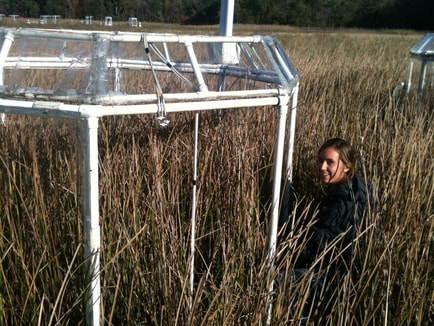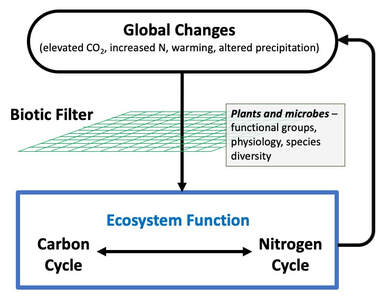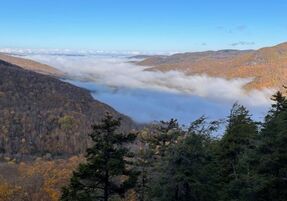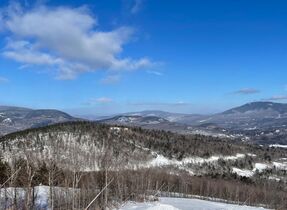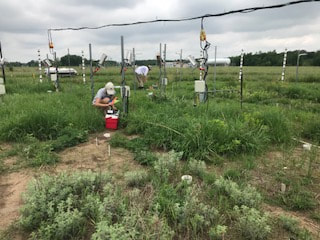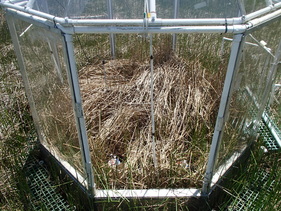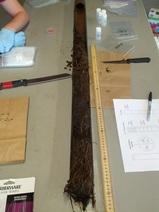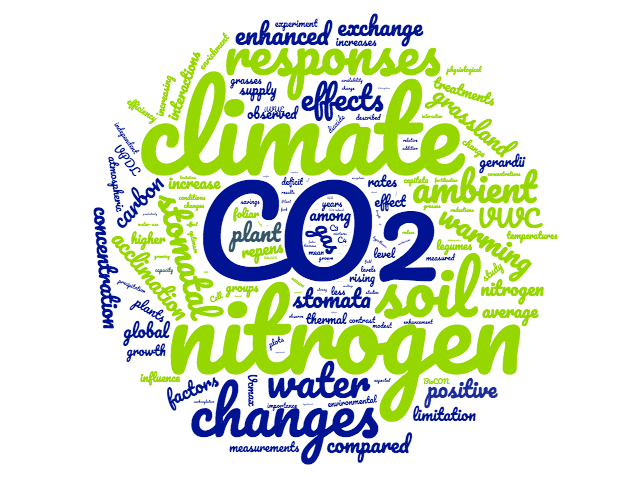About Me
|
I am a global change ecologist who bridges ecosystem ecology with plant ecophysiology to understand how global changes and the interactions among them influence plant dynamics, biogeochemical cycles, and ecosystem function. I take an integrative, cross-scale research approach using long-term field experiments, large-scale observational networks, mechanistic greenhouse and lab studies, and long-term data analysis. By exploring processes that occur over timeframes of minutes to decades and scales ranging from single leaves to entire ecosystems and broad landscapes, my work contributes novel insight into how human-caused global changes work together to impact ecosystem function. I am strongly committed to teaching and mentoring, and am intrigued with the unique qualities each student brings to the classroom and lab.
|
My Research
|
The Intergovernmental Panel of Climate Change (IPCC) has shown that some of the largest uncertainties in global carbon cycle feedbacks involve responses to rising atmospheric CO2 concentration and climate change. I investigate how global changes and the interactions among these factors (e.g., elevated CO2, increased nitrogen supply, warming, altered precipitation, changing biodiversity) affect plant physiology and performance, biogeochemical processes such as carbon and nitrogen cycling, and key ecosystem functions. My research is focused on three interrelated themes: (1) how changes in atmospheric composition and climate affect plant ecophysiology and growth; (2) the role of biodiversity and plant functional characteristics in determining plant and ecosystem responses to global changes; and (3) whether the influence of global changes on plant- and microbially-mediated processes scale up to affect ecosystem carbon and nutrient balances. Much of my past research took place in a tidal marsh ecosystem at the Smithsonian Environmental Research Center along the Chesapeake Bay and in the much drier environment of the Cedar Creek Ecosystem Science Reserve in a Minnesota prairie. Now I am investigating the influence of microclimates and changing wintertime dynamics on carbon cycling across complex forest landscapes in New England. Learn more by following the links below!
|
The impacts of global changes on ecosystem functions like carbon and nitrogen cycling are controlled by the responses of biotic organisms like plants and microbes. In turn, how ecosystems respond to global changes will feed back to further influence the rate and magnitude of global change. I am working across these ecological scales to revolutionize our understanding of ecosystem responses to global environmental change.
|
